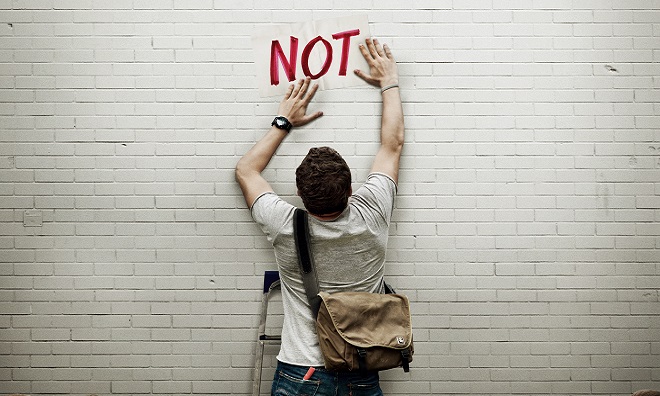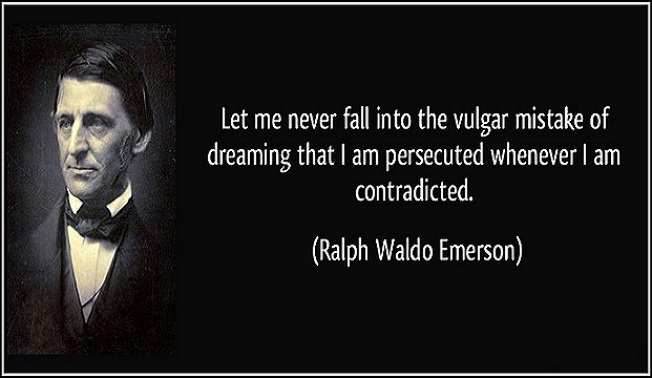God’s Not Dead is Evangelical Fantasy

Neil Carter from Patheos’s Godless in Dixie channel just posted his 300-word synopsis of God’s Not Dead 2 (the tl; dr of his earlier review). More out of curiosity than anything else, I eventually got around to watching the original, only to disappointingly find that it was not the lightsome parody I had hoped for. Far from a satirical sideswipe at evangelical subculture, the film amounted to nothing more than a disingenuous exercise in big-screen apologetics with an implausible premise to boot. “Ham-fisted Christian campus melodrama” and “sick filth,” howled the critics; they weren’t wrong. The sequel appears to hit all of the same notes as its contrived predecessor, doubling down on its themes of persecution, atheist-bashing and tone-deaf proselytizing.
The filmmakers shrug off pretense and skirt any semblance of balanced debate. They know their audience and make no bones about their agenda: to validate the Christian right perspective, however sectarian and loosely attached to reality. Its premise, that of a college student forced to defend his faith against the domineering godless professor (the original) and a grade school teacher suspended and prosecuted for mentioning Jesus in class (the sequel), supply the necessary fertilizer for the syndrome of martyrdom which runs rampant in fundamentalist circles. Whether the real world matches up with this narrative is beside the point, and I suspect fully subordinate to catering to a specific demographic. In the space between facts, what else can exist but fantasy?
The overarching message, of course, and one that’s nearly as old as Christianity itself, is that Christianity is under siege, from atheists, from Muslims, from science and liberal academia, from school boards, from gays and the ACLU, from print and televisual media, even, apparently, from law enforcement (the post-credits scene has a pastor arrested for refusing to surrender his sermon transcripts). It all feeds into a culture of victimhood borne of eroding eminence in American society, a theme that resurfaces with every line spoken and every ominous musical chord played.
Evangelicalism’s shallowing hold on public opinion has led them to seek legitimacy by unorthodox means. In America this faction functions as a quasi-political movement in which ignorance and fear, rather than tolerance and intellectually sincere debate, are used to rally their base in an attempt to reclaim former influence. It is in this parallel culture that evangelicals dwell — where facts, education and basic concern for truth are held at arm’s length and only allowed close when they suit their unshakeable beliefs.
Indeed, evangelicals have their own science, their own history, their own psychology, their own philosophy and, caveat lector, their own movies. You see it again and again with phrases like “macro versus micro evolution,” the denigration of scientific theory as in “just a theory,” undue focus on the origin of life as an unsolvable mystery that threatens to bring down biology. Similar eccentricities exist in the precinct of history, where David Barton — a thoroughgoing fraud — is deeply reputed. Ditto for James Dobson and Franklin Graham. And on it goes.
But perhaps what I find most regrettable is that these movies have only served to further bruise the dialogue between believers and nonbelievers in this country. By depicting the ideological ‘other’ in the most unflattering way possible and their own camp endearingly, they give implicit license to the demagogues who publicly tar and feather the atheists, freethinkers and anyone else they view as spiritual adversaries. Instead of taking the opportunity to dismantle culturally toxic stereotypes and forge a stronger connection across the aisle, it parades around a bogeyman that conforms to the distorted image that exists only in the evangelical mind.
As Neil Carter bemoans of the latest film:
“Every atheist, without exception, is an angry, lazy, thoughtless, careless, self-absorbed, self-interested a**hole, and has nothing better to do than picket court cases while yelling angry taunts and jeers at Christians, who are invariably smiling, peaceful, hand-holding, hymn-singing heroes who consistently show grace, compassion, and love throughout their mistreatment by the rest of the world.”
What possible value could someone who already possesses a narrow outlook on the world take away from this? This message is poison. It embitters rivalries and makes conversation impossible. By churning out theatrical piffle like this, the Christian right declare themselves none too interested in getting to know about life without faith or about life with a different faith, preferring instead to remain mired in their windowless box of dogma and tradition, manufacturing persecution and their rotating phantasmagoria of bugaboos out of thin air. After all, fantasy as reality is what they are good at.
What happens, I wonder, when they run out of bogeymen? Will they cease to exist? Or will fear, ignorance, and loathing — the combustible essence that makes them tick — simply conjure whatever new specters their influential leaders feed to them?
In the end, the God’s Not Dead series does nothing to improve the state of the culture wars in America. It’s polarizing, and proudly so. It’s intellectually and morally dishonest. It inflames tensions on both sides when honest conversation is both more necessary and more difficult than ever. It’s predicated on caricature and bad faith and woven together with themes of universal persecution and victimhood. It feigns modesty while using imagined grievances and imagined differences to avoid contact with difficult questions. It elevates self-preservation and theological insularity above any careful appraisal of values and the limitations of their way of seeing the world.
This is not the way forward. Research has consistently shown that the best path to shattering stereotypes and prejudice is through fostering relationships. Establishing friendships and forging meaningful connections with gays, lesbians, atheists, and other historically misperceived minorities helps disabuse stereotypes and sever reflexive hostilities. What is truly needed is more — and more honest — dialogue in order to usher in a more prudent and harmonious existence for us all. Offerings like God’s Not Dead actively push against this initiative, and I encourage readers to speak out against these films.

Further reading:
- How to Determine If Your Religious Liberty Is Being Threatened in Just 10 Quick Questions
- Please Stop With the Christian Persecution Complex. You’re Embarrassing the Faith.
- A Philosophy Professor Analyzes God’s Not Dead’s Case For God
- ‘Persecuted’ Is the Christian Right’s Paranoid Wet Dream
- The Death of Jesus and the Rise of the Christian Persecution Myth
- The Myth of Persecution by Candida Moss


Comments